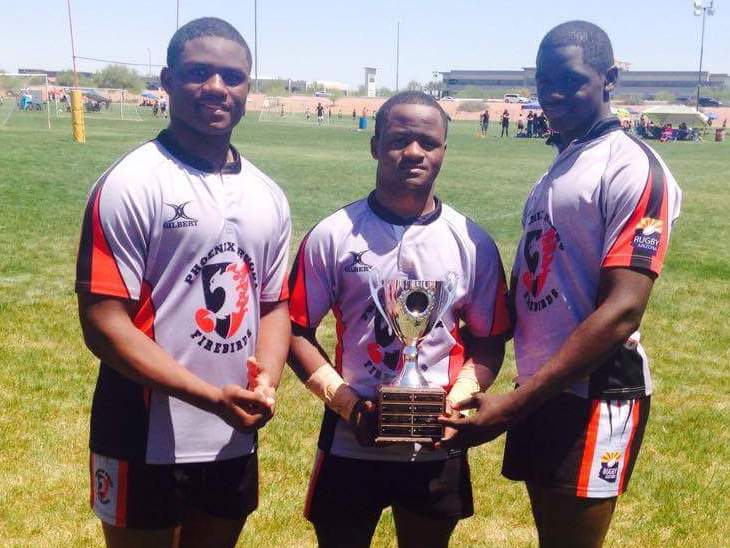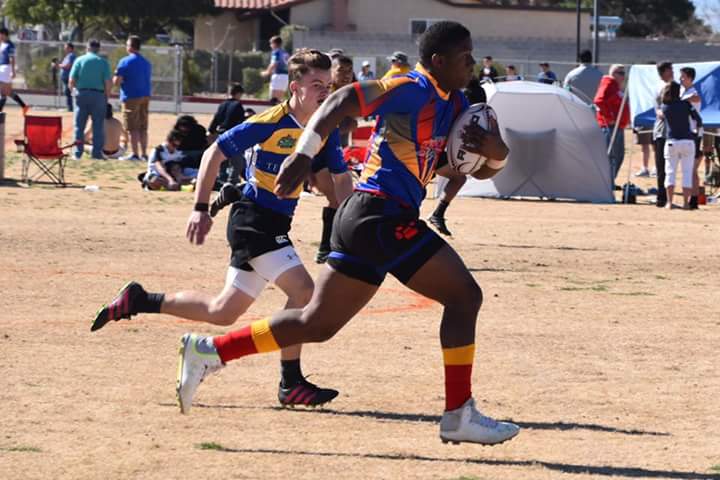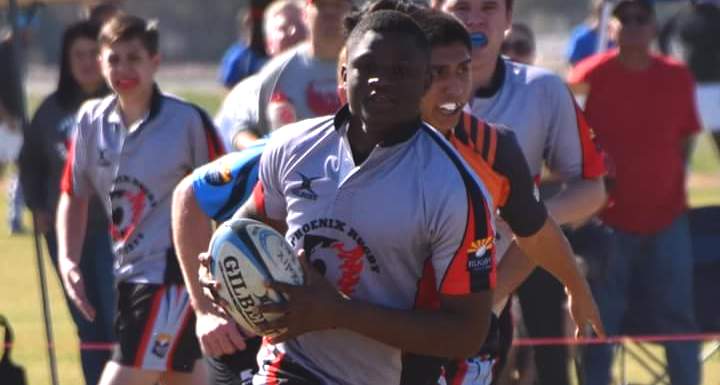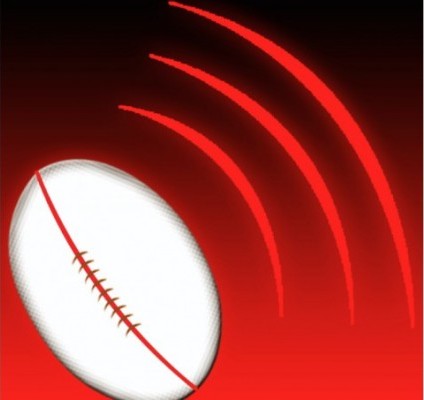Kwete Brothers Shine Through Rugby in New Home
Kwete Brothers Shine Through Rugby in New Home
Plenty of impressive young rugby talent will be on display this coming weekend at various HS all-star tournaments, but it’s unlikely any of those players has the backstory of the Kwete brothers.
Suiting up for the Arizona Bobcats this weekend at the Rocky Mountain Classic, Oliver, Eloi, and Cosmas Kwete are all three loaded with talent, and some life-changing experiences.
 |
 |
 |
The three were born in the Democratic Republic of Congo right in the middle of a war. The Second Congo War, a massive and horrific conflict that lasted five years and killed millions. Even when the war ended in 2003, the suffering remained for its people, as illness and starvation displaced millions more.
The end of the war didn't necessarily bring peace to regular people. Political wounds and anger remained, and where the Kwete family lived they were subject to soldiers coming into their homes, destroying property, and putting people at fear for their safety.
"We had to leave," said Oliver. And off they went. For the Kwete family, the bad news was they were among the displaced, searching for a home. The good news was they found a safe place, and the brothers grew up in Harare, Zimbabwe.
“I was five years old,” said Oliver, the oldest. “I remember moving. My brothers are too young, they don’t remember. Families were spread all over, moved to different places. It was a very scary time.”
In Zimbabwe, the boys embraced a safer life, attending school and starting to play a game they quickly grew to love - rugby.
“Rugby there is like an everyday sport,” said Oliver. They play it in the streets, at school, in clubs, in compounds … everywhere,” said Oliver.
The boys attended different schools and developed a strong rivalry, but then, again, things changed. A refugee replacement program gave the Kwetes the chance to move to the United States. Despite the fact they knew they would have to deal with many adjustments in their lives, they jumped at the chance, and moved to Phoenix, Ariz.
“I thought of it as a new life, a new chapter,” said Oliver. “Sort of like a new book to read. It gave us a chance to have new goals.”
New at school and dealing with some language barriers, the Kwetes found a familiar friend in rugby. The Phoenix club wasn’t quite as polished as the school teams in Harare, where kids start playing at a very early age, but the boys blossomed.
Oliver is the oldest, and has just finished his junior year in high school. He plays center and scrumhalf. Eloi plays center, No. 8, and flanker, and is the tallest and, said Oliver, the strongest of the three. Cosmas is a lock and flanker, and, said Oliver, the most aggressive.
We also asked Oliver who was the fastest, and he didn’t hesitate.
“The fastest,” he said, “is me.”
They are all talented, and certainly the Phoenix Firebirds weren’t too disappointed to have these three on the team. This year, with Oliver, Cosmas, and Eloi on the squad, Phoenix went undefeated in Arizona’s DII high school league, and then defeated East Valley 60-5 in the semis, and Northern Arizona 85-0 in the state final. Their only loss was to DI runner-up Ahwatukee and the Firebirds beat two other DI teams. All through this the Kwete brothers excelled, and were noticed by HS All American Head Coach Salty Thompson.
“Oliver caught my eye because he is very athletic, and I saw that all three of them are,” he said. “They transformed the Phoenix club. They’ve all got an above-average rugby IQ; they obviously understand the game, and they also seem to integrate into the team and life in Arizona really well. They always seem to have smiles on their faces.”
The boys are all now at the same school and on the same team and, this weekend, on the same all-star team. The rivalries from Zimbabwe are forgotten.
“Here we’re together and we decided to support each other in everything we do,” he said. “All of our main aims are to succeed in rugby and life. We would love to get the opportunity to play for the Eagles. Being an American, you see that where people and families grew up, everybody is expected to be different -not everyone’s the same. We appreciate that. The language - we are adapting to it. We got used to speaking English and we could at least understand what people were saying when we got here. But for us, rugby is really important. it was the main way we got to better schools in Harare - the schools where they played good rugby and taught good English. It built our foundation.”











